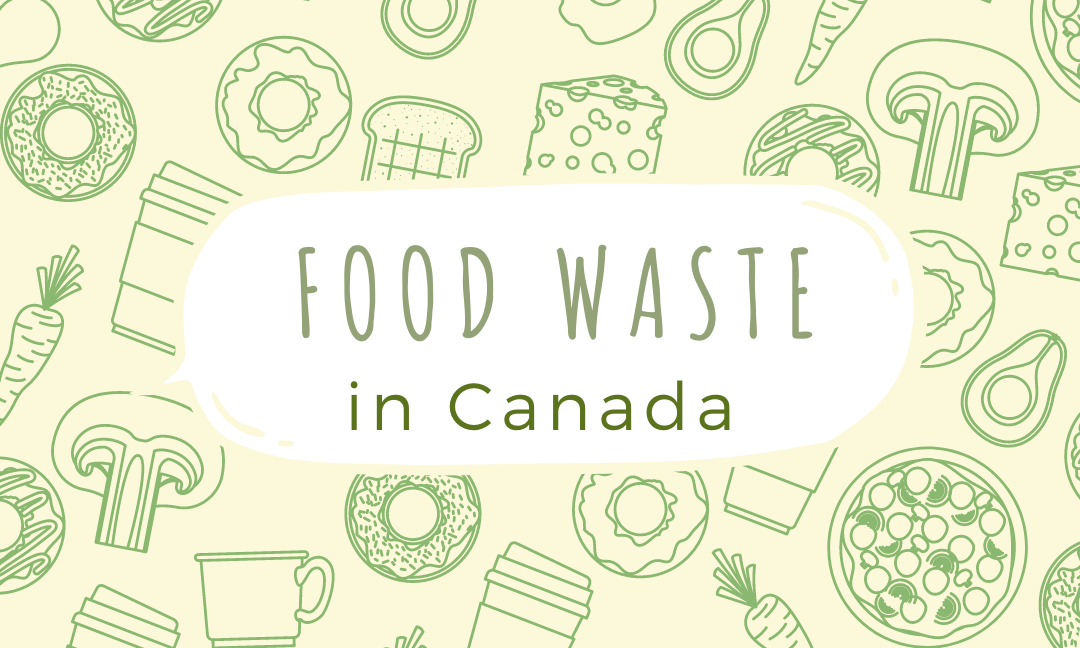Written by: Sameed Naushad
Of the food delivered to consumers in Canada, 58% is thrown out to waste. As a result, 35.5 million tonnes of food are wasted annually, costing the country $17 billion. When it comes to food waste, the numbers for Canada are high.
Why is food waste so bad anyway? Well, food waste has a major impact on the environment. This includes causing climate change, pollution, affecting ecosystems, and much more. By reducing our waste, we could limit the effects of these issues.
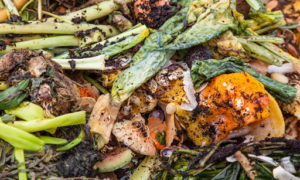
How Canadians Influence Food Waste
According to research from the government of Canada, 11 million tonnes of food that is thrown out every year is a result of avoidable waste. This is edible food that is thrown out by consumers. Not only does this show how important it is to be sustainable, but it also proves that our actions have major impacts on the issue of food waste. If we successfully decrease our waste by significant amounts, we could have up to 60% more food availability by 2050. Not only would we be helping out the environment, but we will also be able to target another global issue, world hunger.
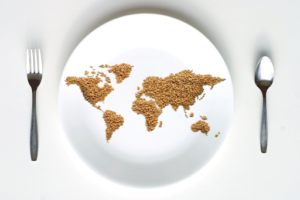
Causing Climate Change
Food waste in Canada is sent to some of its 10,000 landfills. It contributes to 56.5 million tonnes of the greenhouse gas emissions that Canada releases every year. Greenhouse gases trap heat into the atmosphere and influence climate change. A large portion of the emissions released is methane – a greenhouse gas that is 25 times worse than carbon dioxide. Food waste only accelerates the ever-growing issue of climate change. Luckily it isn’t too late to make a turn in the right direction. According to the Royal Bank of Canada, if we reduce 50% of our food waste by 2050 and stick to plant-based foods, we could avoid emissions worth 26.2 billion tonnes of greenhouse gases.
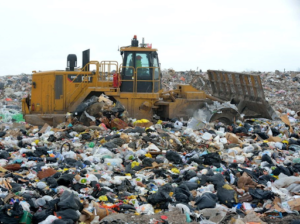
Effect On Canada’s Polar Bears
With all the greenhouse gases food waste contributes to climate change, some Canadian animals have been put at risk. According to the World Wide Fund for Nature Canada, polar bears are a special concern. Canada is responsible for polar bears as more than two-thirds of the world’s polar bears are in the country’s territory. They also play a huge role in marine arctic ecosystems, being at the top of the food chain. The decline in the number of polar bears could have negative effects on other animals in their food chain.
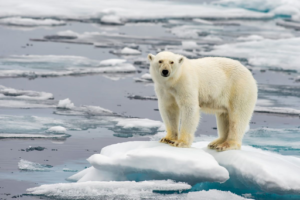
Limiting Resources
When food is wasted, all the resources used in its production like water, oil, and land are wasted too. These are essential resources for the planet, so using them sustainably is necessary.
Food waste accounts for millions of gallons of water that have been lost. This water is used for growing and sustaining the food and can be a large portion of the food itself, like in many fruits and vegetables. Meat products use even more water than fruits and vegetables because of all the water animals require in their life spans.
Oil is a resource used in our everyday lives for things from cooking to transportation, but it also massively contributes to pollution and climate change. Since oil already has harmful effects on the environment, wasting it makes it that much more harmful, without providing beneficial uses.
Large amounts of farmland are required for the production of food. To obtain this land, forests are cut down. Carbon dioxide is initially absorbed by the forests for the well-being of trees and to produce oxygen, but is then released into the air when they are cut down. This causes climate change. According to the Royal Bank of Canada, reducing food waste can prevent deforestation for additional farmland, resulting in 44.4 billion tons of harmful emissions being avoided.
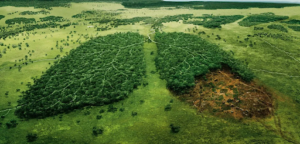
Being sustainable with our food can significantly reduce the amount of waste we create. Educating ourselves is important if we want to start learning what impact we could have. Here is a blog post that provides 5 Easy Ways To Reduce Your Food Waste, covering topics like how to shop smartly, sustain our food, and more. By taking action now, we could minimize the many harmful effects food waste has on the environment. We should start working together with our families and friends today, and by being careful of what we waste, we will be creating a better future.
Works Cited
“Atlantic Walrus: Species Facts, Info & More.” WWF.CA, 30 Apr. 2021,
https://wwf.ca/species/atlantic-walrus/.
Canada, Environment and Climate Change. “Government of Canada.” Canada.ca, / Gouvernement Du Canada, 28 June 2019,
“Canadians Waste 58% of All Food Produced in the Country: Report.” Global Citizen,
https://www.globalcitizen.org/en/content/canadians-food-waste-report/.
City of Toronto. “Food Waste.” City of Toronto, 23 Aug. 2021,
Cruickshank, Andrew. “How Global Warming Is Affecting Canada’s Polar Bears.” Cottage Life, 11 May 2020,
https://cottagelife.com/outdoors/how-global-warming-is-affecting-canadas-polar-bears/.
“Deforestation: A Few Solutions That Can Change the Future – Biofriendly Planet: For a Cooler Environment.” Biofriendly Planet | For a Cooler Environment, 8 Jan. 2021,
“5 Ways Food Waste Is Destroying Our Beautiful Planet.” New Food Magazine, 21 May 2018,
https://www.newfoodmagazine.com/article/43551/five-ways-food-waste-environment/#comments.
“Food Waste, the Environment + Climate Change.” Food Matters Action Kit, 9 Apr. 2019,
Haig, Terry. “New Report Provides Numbers on How Much Food Is Wasted in Canada.” RCI, Radio Canada International, 13 Mar. 2021,
“Pandemic Worsens World Hunger, Un Finds.” World Grain RSS,
https://www.world-grain.com/articles/15536-pandemic-worsens-world-hunger-un-finds.
Sun, Special to Toronto. “Chopowick: Ontario Needs New Landfills.” Torontosun, Toronto Sun, 5 Nov. 2019,
https://torontosun.com/opinion/columnists/opinion-ontario-needs-new-landfills.
“What Food Is Wasted?” Too Good To Go,
https://toogoodtogo.org/en/movement/knowledge/what-food-is-wasted.

